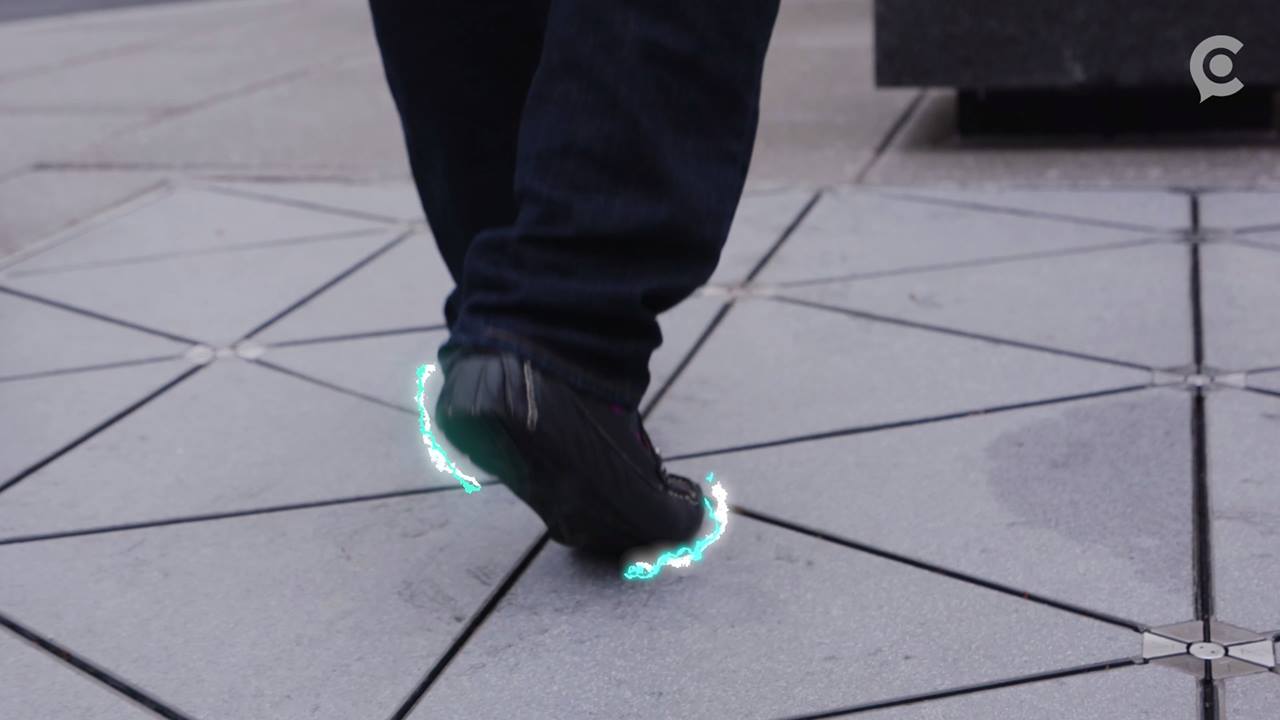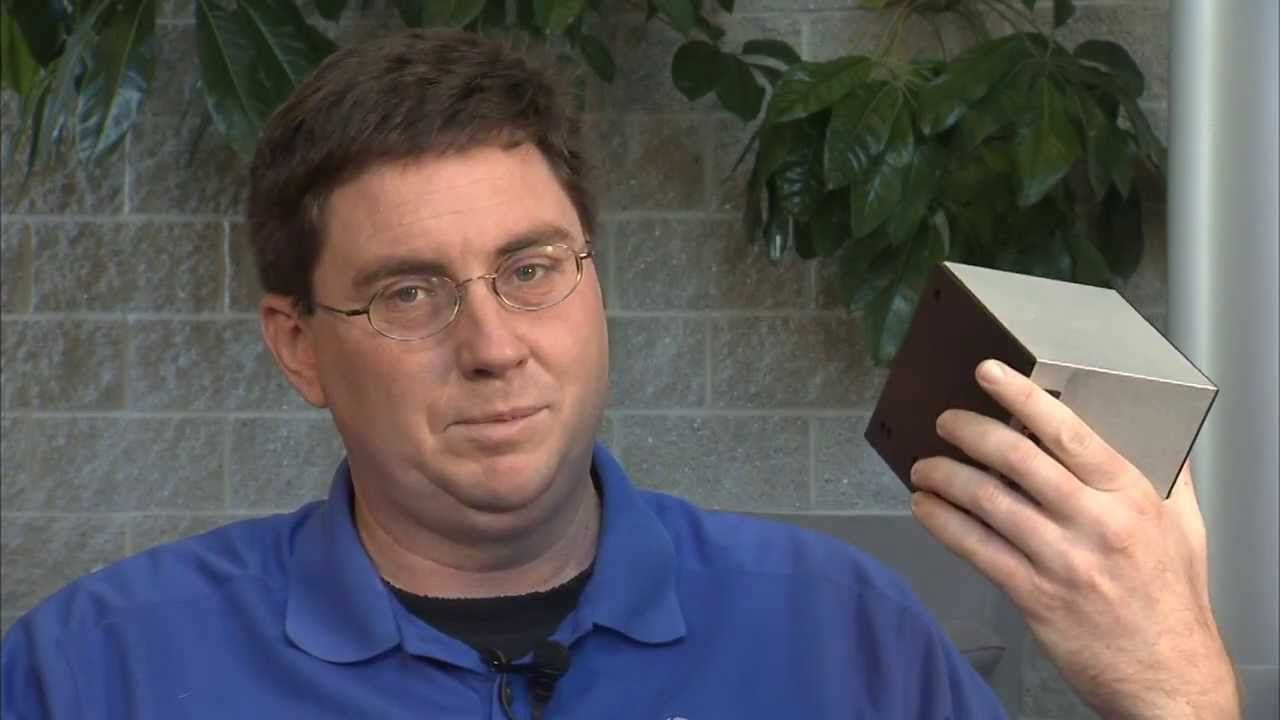Published today, using a technique which looks like trampoline, IBM scientists have measured the thermal conductance of metallic quantum point contacts made of gold down to the single-atom level at room temperature for the first time.
As everything scales to the nanoscale, heat – more precisely, the loss of it – becomes an issue in device reliability. To address this, last year, IBM scientists in Zurich and students from ETH Zurich published and patented a technique to measure the temperature of these nano-sized objects at and below 10 nanometer – a remarkable achievement. They called the novel technique scanning probe thermometry (video) and it provided engineers, for the first time, with the ability to map heat loss across a chip, and, more importantly, map heat loss down to the single device level and to map temperature distributions.
NASA has accepted a plan from a private venture called NanoRacks to provide the International Space Station with an air lock that would serve as its first commercial portal.
The plan could serve as the model for the eventual development of entire space stations backed by the private sector.
I actually had a person recently state quantum was a fad; boy were they ever wrong.
During the next ten years, quantum technologies will become part of and revolutionize our everyday lives in the form of computers, sensors, encryption, and much more—and in a way that can be difficult for us to comprehend.
Businesses will also boost both their research and development activities in this area.
“As from 2018, EU’s future flagship project, which is backed by EUR 1 billion, will focus on quantum technology, and several European countries are investing massively in the area. Innovation Fund Denmark has contributed DKK 80 million, and over the next couple of years, more funds are likely to be allocated to quantum research,” explains Ulrik Lund Andersen, Professor at DTU Physics.
NICE.
The Science
Newswise — Quantum computers — a possible future technology that would revolutionize computing by harnessing the bizarre properties of quantum bits, or qubits. Qubits are the quantum analogue to the classical computer bits “0” and “1.” Engineering materials that can function as qubits is technically challenging. Using supercomputers, scientists from the University of Chicago and Argonne National Laboratory predicted possible new qubits built out of strained aluminum nitride. Moreover, the scientists showed that certain newly developed qubits in silicon carbide have unusually long lifetimes.
The Impact
Nice write up and anyone working or researching central nervous system should not find this research and findings shocking.
Re: Scam hunter’s question; “Can you explain what a scalar torsion field model is?”
The History of Scalar Energy
The discovery of Scalar Energy can be attributed to James Clark Maxwell, a Scotsman who was born in the 19th century. Maxwell was a mathematical genius whose work led to the development of quantum physics. Albert Einstein worked on Maxwell’s findings and discovered “The Theory of Relativity”.
Quantum cognition
Posted in mathematics, neuroscience, quantum physics
Quantum Cognition — recently published as a new field term for cognitive thinking.
Quantum cognition is an emerging field which applies the mathematical formalism of quantum theory to model cognitive phenomena such as information processing by the human brain, language, decision making, human memory, concepts and conceptual reasoning, human judgment, and perception. [1][2][3][4] The field clearly distinguishes itself from the quantum mind as it is not reliant on the hypothesis that there is something micro-physical quantum mechanical about the brain. Quantum cognition is based on the quantum-like paradigm[5][6] or generalized quantum paradigm [7] or quantum structure paradigm [8] that information processing by complex systems such as the brain, taking into account contextual dependence of information and probabilistic reasoning, can be mathematically described in the framework of quantum information and quantum probability theory.
Quantum cognition uses the mathematical formalism of quantum theory to inspire and formalize models of cognition that aim to be an advance over models based on traditional classical probability theory. The field focuses on modeling phenomena in cognitive science that have resisted traditional techniques or where traditional models seem to have reached a barrier (e.g., human memory [9]), and modeling preferences in decision theory that seem paradoxical from a traditional rational point of view (e.g., preference reversals [10]). Since the use of a quantum-theoretic framework is for modeling purposes, the identification of quantum structures in cognitive phenomena does not presuppose the existence of microscopic quantum processes in the human brain.
A short rebuttal of the ‘immortal dictators’ objection.
C’mon now. This isn’t even a serious objection.
Preamble: I’m sure this is obvious, and I have repeated it who knows how many times, but rejuvenation would not make you immortal. Rejuvenation saves your butt from diseases, not from bullets.
That being said, let’s stick to the topic of bullets and guns for a little while. This particular objection to rejuvenation is something like this: Tyrants and oppressors would sure do anything in their power to get their hands on rejuvenation and use it to perpetuate their dictatorship indefinitely. Since an everlasting dictatorship is bad, the rejuvenation therapies that might lead to it are bad too.







